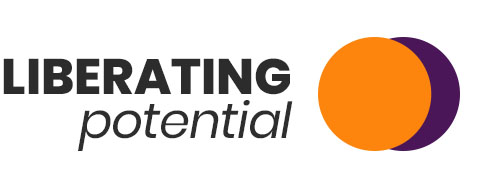The current pandemic has suddenly forced many previously co-located people to work remotely, a practice that may continue as a ‘new norm’. In the Global economy, remote and virtual working is not new, but for many leaders of previously co-located teams as well as those more experienced in remote leadership the current context presents a profound challenge.
A deep level of human concern that can contribute to problems in working relationships and cause silo working is the existential concerns that we all face, consciously or unconsciously, and that we need to reconcile. Four central concerns based on the work of Irvin D. Yalom (Existential Psychotherapy, 1980) are:
- Our vulnerability — acceptance of how vulnerable we are in a life lived in awareness of mortality
- Freedom — accepting that we have freedom of choice and that we are the architects of our own lives
- Isolation — recognising that we enter and leave the world on our own and are ultimately separated from other people and the world itself
- Search for meaning — the recognition that the universe itself contains no inherent meaning for the life we have.
On the normal distribution curve of society people will populate different positions in relation to these concerns and respond in different ways. The majority are likely to be accepting of life’s predicaments but find different ways of coping. Typical ways of dealing with these concerns are:
- Getting ‘wrapped up’ in what you do. The extreme would be the ‘workaholic’, but losing yourself in any activity can be a way to avoid a number of these concerns on a day-to-day basis
- Following routines, taking comfort in the familiar and hanging on to what we know
- Developing defensive routines to protect ourselves — such as from the hurt or harm that being in ‘close’ relationships can cause — which can manifest in relationships as manipulation and avoidance
- Adopting a cause, something that provides meaning.
The typical ways of dealing with existential concerns point to some of the ways relationships in organisations can be affected. The main issue is people’s attitude to change. People may not adapt to changes because they hang on to the tried and trusted ways in order to maintain the status quo. They avoid the uncertainty of change and therefore the need to face up to the existential concerns. Change means that we need to face our vulnerability, take responsibility, develop new relationships and find new meaning in the changed situation.
More importantly for silo working, people get into a comfort zone of relationships in their work. Not only to get things done, but also because they hang on to the familiar and what works for them. Working differently in order to develop new or improved relationships can challenge our tried and tested ways of being and doing things and make us feel more vulnerable or exposed. We most likely will need to change our beliefs and behaviours and possibly our view of ourselves. Familiarity gives way to uncertainty and the need to take responsibility in the new situation. I have seen a lot of examples in organisations where a change in relationships and ways of working are needed but nobody is seeking the change. Often there are layers of avoidance and reasons why things must stay the same.
The current crisis exacerbates all the existential concerns. People are feeling vulnerable and isolated and are having to rethink their current purpose and responsibilities. In a remote working environment, the risk of people withdrawing into silo working is high. Typically, whether an individual, a team, an organisation or even a nation – as recent experience has shown – people need to regain enough confidence in themselves before they can reach out and connect with others. This is a natural process that takes time. If teams get stuck and do not go through development stages in their relationships, they will be prevented from realising their full potential.
More than ever now leaders need to focus on the human element in virtual teams. Remote and virtual working tends to focus people more on “task” achievement at an early stage. As such it can seem more efficient as people get on with the work without the usual interpersonal and group dynamics. For the task-focused manager this could be a very comfortable situation. However, a lot of motivation, insight and creativity can be missed if the human factor is not considered – not to mention the need to support people’s well being. Remote and virtual teams are still made up of people engaged in a common task, and from this point of view the same core principles of team leadership, management and development apply. The remote and virtual environment demands a mindset that recognises the continuing human needs for contact and meaningful relationships and an ability to utilise all available means to meet them.
For further information on hybrid working and leading remote teams please contact me.

